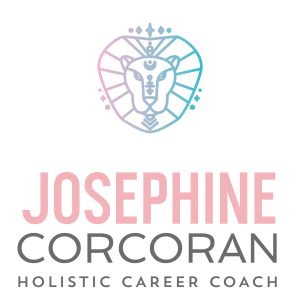Not a lot of people may be familiar with what a skills audit is and what it is used for. Organisations and employers, however, have been making use of skills audits for quite a while, especially now that more businesses are moving into the future with digitalisation and globalisation.
As the name implies, a skills audit is the process of assessing an employee’s skills through a questionnaire or a one-on-one interview. The purpose of conducting such an activity is to identify the employee’s current competencies. This also helps to determine any gaps in their knowledge that may have an impact on the organisation’s long-term vision or the employee’s growth within it.
Of course, the process of auditing one’s skills doesn’t have to be limited to HR managers and members of senior management. You, too, can conduct a personal skills audit on yourself. There are plenty of reasons why doing so can be advantageous, as the process can familiarise you with your existing abilities and highlight the areas where improvement is necessary. All this can help you when you’re setting new professional goals or considering making changes in your career.
There’s also a no better time to do so than the present. Mars has moved into Taurus as of January 6th and will remain there until March 3rd, signifying an excellent time to start focusing on yourself. The planet’s presence stirs up passion and motivation, too, making this an auspicious period for starting new ventures. Start your new year right with a personal skills audit today. Here’s how:
Skills Auditing 101
A proper skills audit will involve taking a look at all of your skills, from your career-based skills to your soft skills. It will require you to view yourself holistically yet honestly, which can be a challenge when we all live such segmented, compartmentalised lives. Remember that some of the skills you use in your personal life can also be applied in the workplace—leave nothing out!
Here are a few questions that you can ask yourself to get started. Write your answers down on a piece of paper or type them out on a blank document so that you can review them later.
- What do you currently do at work?
- What is your official Job Description, and what are the skills necessary to do this job? Does this line up with what you currently do now? Are there any other things that you do for your job?
- What kinds of skills did you learn during your time in school? What about the skills that you gained from your previous work experiences? It can be useful to think about the specific projects that you had a hand in or any of your job achievements or awards/honours that you have received at work.
- What skills do you use in your personal life? For example, you may be the moderator for an online group for one of your hobbies or special interests.
- Speaking of hobbies and special interests, what are yours?
- Do you have any skills that you most enjoy using?
- Which of your skills are you most interested in developing or refining? What kinds of courses would you be most interested in taking?
- What types of volunteer work would you be interested in doing? Volunteer work is another excellent avenue to develop existing skills or acquire new ones.
Moving Forward with Your Skills Audit
Now that you have a complete picture of your skills, you can start looking into how to hone them. This is also a good time to examine your deficiencies and begin to work towards turning them into strengths.
Focus on Your Professional Needs
There’s no point in picking up skills at random. You always want to keep your professional progression in mind when choosing which of your current abilities to invest in. From your skills audit, you should have also been able to identify areas of weakness that hamper your performance at work. It’s always a good idea to focus on reinforcing those skills instead of picking up a new one that has nothing to do with your current role.
Set SMART Career Goals
Setting career goals is incredibly important, especially if you plan on advancing yourself in your organisation or field. Go about it in a SMART way: your goals should be Specific, Measurable, Achievable, Realistic, and Time-bound. This will ensure that your aspirations are clear and reachable.
Invest in Yourself
Finally, use what you’ve learned through your skills audit to figure out what types of training will best complement your existing competencies and abilities. You can choose from a wide variety of training programs out there, though it’s always a good idea to pick ones that are skills-based and remain within the boundaries of your job.
We hope that these tips have given you a better idea of how to conduct your own skills audit. Done properly, this should give you a better perspective of your strengths and weaknesses as well as what you can do to better yourself. Whether you’ve just started at your new job or have been in the same industry for a while, it’s never too late to start investing in your professional self-development.
Send Josephine Corcoran a message today to conduct a natal chart reading today.

What do you think?
You must be logged in to post a comment.